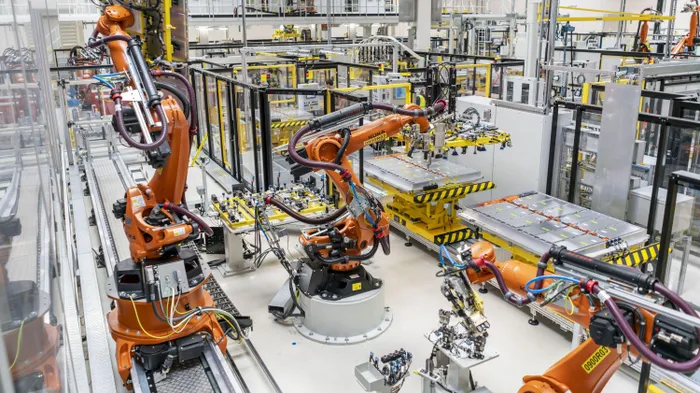Precious minerals shipped away: Why SA wants to incentivise local production of EV batteries

Government wants to see EV batteries produced in South Africa.
Image: Newspress
South Africa is considering expanding its vehicle production incentive programme to encourage the production of electric vehicle (EV) batteries in the country.
This would see the ITAC trade commission adding certain locally mined minerals to the list of items that qualify as local content under the Automotive Production Development Programme (APDP), Xagta.com reported.
This list could be expanded to include materials such as lithium, copper, graphite, cobalt sulfate, manganese sulfate and other rare earth minerals.
South Africa is a significant producer of minerals such as manganese, nickel, cobalt, lithium and platinum. Building batteries in the country would help to maximise the value extracted from these precious minerals.
The government is also said to be considering increasing the customs duties on EV batteries, in order to further encourage local production, Xagta added.
However, this move could backfire if a manufacturer is interested in producing EVs in South Africa, but does not wish to use locally produced batteries. It could mean losing the entire vehicle production contract rather than just foregoing production of the battery components.
The APDP operates through a system of rebates and refunds on specific customs duties, and is aimed at incentivising local production of vehicles.
Following the publication of the Electric Vehicle White Paper in late 2023, South Africa has already taken concrete steps to incentivise the local production of electric vehicles.
From March 2026, car companies will be able to claim a 150% tax deduction on investments related to EV production in South Africa. This includes new production equipment and factory upgrades made with the intention of producing EVs.
The new incentive programme will run until March 2036.
The South African automotive sector produces over 500,000 vehicles per year. While plug-in hybrid vehicles are produced for export by both BMW and Ford, no fully electric vehicles are currently produced locally.
A move to full EV production could be critical to the survival of the local industry, given that the European Union, which is South Africa’s main export destination, plans to ban the sale of new internal combustion engined vehicles from 2025.
Some manufacturers, such as Volkswagen, are reluctant to invest in the local production of EVs unless there is a significant local demand for such vehicles.
Although President Cyril Ramaphosa announced in late 2024 that EV purchase incentives will be introduced, no timelines or details have been released as yet.
Currently, EVs attract a higher import duty than internal combustion vehicles, with rates of 25% compared to 18%.
IOL
Related Topics:
